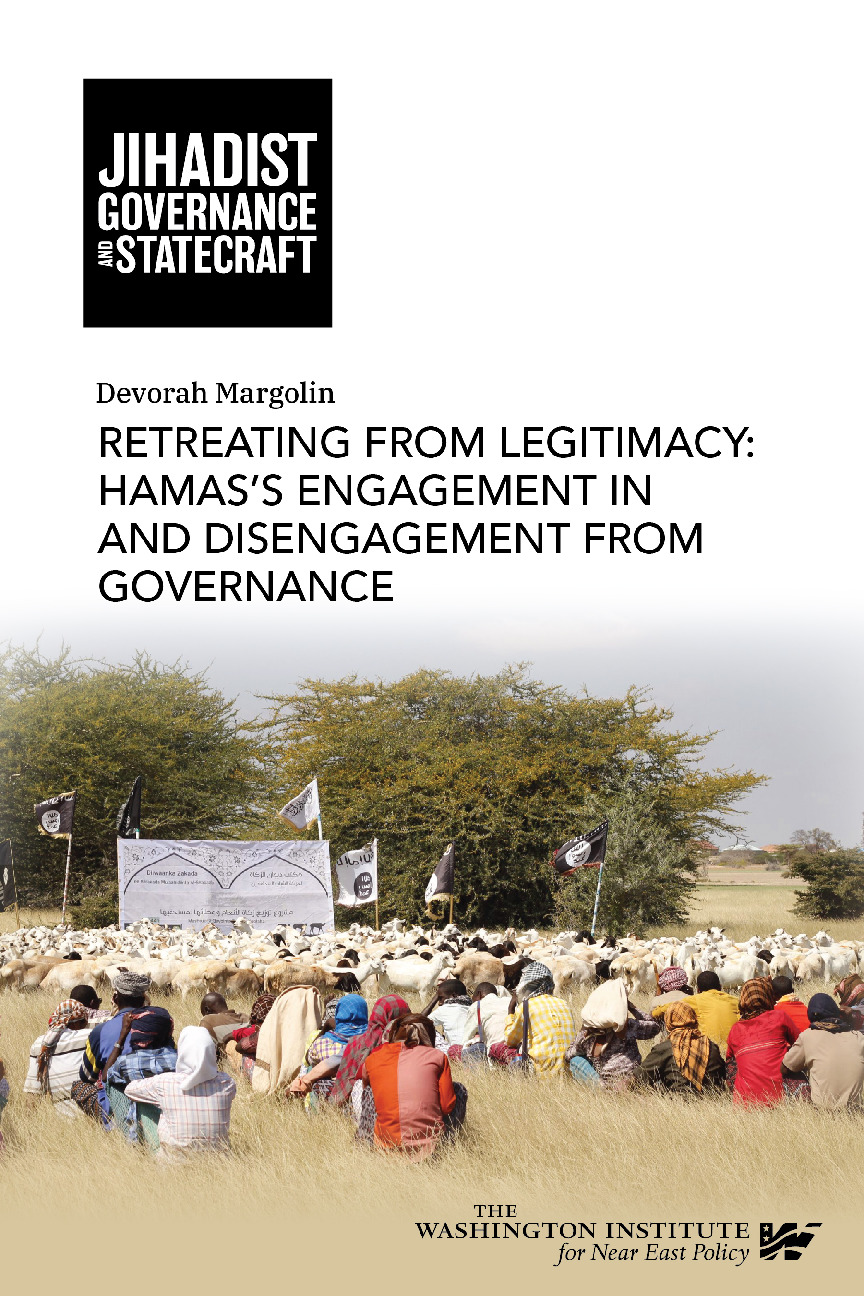
- Policy Analysis
- Articles & Op-Eds
Retreating from Legitimacy: Hamas's Engagement In and Disengagement From Governance

Part of a series: Jihadist Governance and Statecraft
or see Part 1: Jihadist Governance and Statecraft
In this chapter from the Jihadist Governance and Statecraft compilation, Devorah Margolin explores how Hamas has balanced the contradictions between the demands of governance and of continued terrorist operations.
Jihadist groups have taken over or built institutions in alternatively governed areas using a variety of methods. Some use violence, while others coopt existing political systems. Some become full governing actors, while others utilize aspects of governance to further their agenda without accepting full accountability to local populations. Hamas remains a unique case, as it is one of the few jihadist actors that entered governance—at least initially—through elections. While many assumed that Hamas would use its governance to gain legitimacy, the group instead entrenched itself in a system of control, while never relinquishing its ultimate goal of destroying Israel.
Hamas’s Muslim Brotherhood roots are a vital component in understanding how the group has garnered internal and external support over the years, both before and after becoming a governing actor. As a Brotherhood-inspired group, it has focused on revolution from below, using existing political structures and establishing social services to gain and maintain popular support. Hamas has even engaged in aspects of modern political systems, including participation in the 2006 Palestinian elections, in hopes of creating a government eventually ruled by sharia.1 In using a bottom-up approach to governance efforts, Hamas has sought to frame its “Islamization” of society as a choice driven by Palestinian populations living under its control. But despite this framing, Hamas has resorted to applying pressure and violence upon civilian populations on numerous occasions in order to achieve its goals of a “traditional” Islamic society and to deter dissent.






